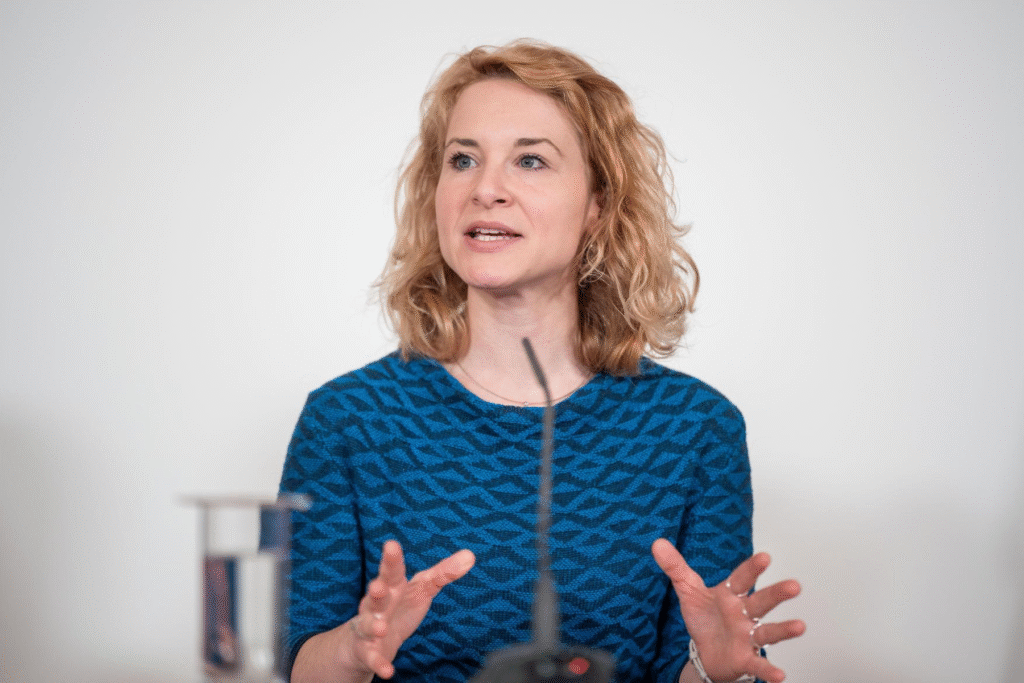
Science Minister Eva-Maria Holzleitner (SPÖ) wants medical students to make a “solidarity contribution.” Those who complete a free degree at a public medical university should, in return, be required to work for a certain period in the public healthcare system. Holzleitner told APA that her ministry is currently examining what form such a commitment could legally take.
A small-scale version of this already exists. Currently, 85 out of 1,900 study places are reserved for “tasks in the public interest,” such as work in hospitals, public health practices, or the military. Applicants who commit to working in these sectors after graduation receive a scholarship and an advantage in the admissions process.
Earlier Calls For Mandatory Service
A push for a general obligation was last made in early 2024 by then-Chancellor Karl Nehammer (ÖVP). However, medical law expert Karl Stöger from the University of Vienna concluded in an opinion for the Medical Association that such a regulation would be unconstitutional and contrary to EU law. A “voluntary commitment,” for example through a rural doctor quota, would be permissible if only as many places were reserved as necessary to maintain healthcare, Stöger said in another report commissioned by the Chamber of Labor (AK).
Minister: Not A Raised Finger Of Warning
Holzleitner said she does not view the idea as a “raised finger of warning,” referring to critics such as the new rector of the Medical University of Innsbruck, Gert Mayer. Open university access in Austria is very important, she said, and tuition fees are deliberately not charged. “It is a handshake between students and taxpayers, where one says: for this opportunity to study, you make a solidarity contribution to the community, obligatory for a certain period.”
At the same time, the minister wants to better engage the many applicants who fail the entrance exam for medical school. Currently, only one in six applicants secures a place. In the future, those who do not qualify will be actively informed about alternative training paths in healthcare.
Medical Association Rejects Proposal
The Medical Association voiced opposition on Saturday. Vice President Harald Mayer, who also heads the federal section of employed physicians, stated that doctors already make major contributions to solidarity-based healthcare every day: “Even during residency training, our young doctors show the greatest dedication 365 days a year to patient care. They do this voluntarily and with motivation because it is their calling, not just a job. Therefore, I cannot understand calls for solidarity contributions or mandatory obligations.”
He also noted that medical students, especially during their clinical year, already contribute as full members of university clinics and teaching hospitals. Austria’s young doctors are highly motivated to begin specialist training immediately after graduation and to work within the public healthcare system, Mayer said. “Far too many are prevented from doing so because they are not offered training positions and are left waiting for months. That is what drives our highly trained young doctors abroad. This—rather than mandatory service—should concern policymakers.”
Higher Income Limits For Study Grants
For Holzleitner, social security remains a key topic in the new academic year. Many students in Austria must work to afford their studies—often to such an extent that progress and academic exchange suffer. For this reason, the study grant was adjusted for inflation in September despite tight budgets. Holzleitner also aims to raise income limits for study grants in the next budget negotiations: “This has not happened in a long time.”
She also wants to improve the accuracy of the study grant program “so that it reaches those from households without a strong financial background.” Holzleitner plans to reintroduce state support for student dormitories in the 2027 budget. The ministry is currently assessing the funding required.
Research Pact Still A “Hard Nut”
Negotiations on the Research, Innovation, and Technology Pact (FTI Pact) remain “a hard nut to crack,” Holzleitner said. By the end of the year, funding for the country’s main research agencies and non-university institutions for 2027–2029 must be determined. Responsibility for research is shared with the Ministries of Economy and Infrastructure. “The legal mandate is clear, and we must adhere to it,” she stressed. The Research Financing Act (FoFinaG) stipulates long-term, growth-oriented funding. Whether the organizations—including the Austrian Academy of Sciences (ÖAW), the Austrian Institute of Technology (AIT), and the Science Fund (FWF)—can expect full inflation compensation of around €5 billion for the current three-year period remains unclear. The minister said the deadline for the new pact runs until the end of December and “we will have to negotiate hard until then.”

